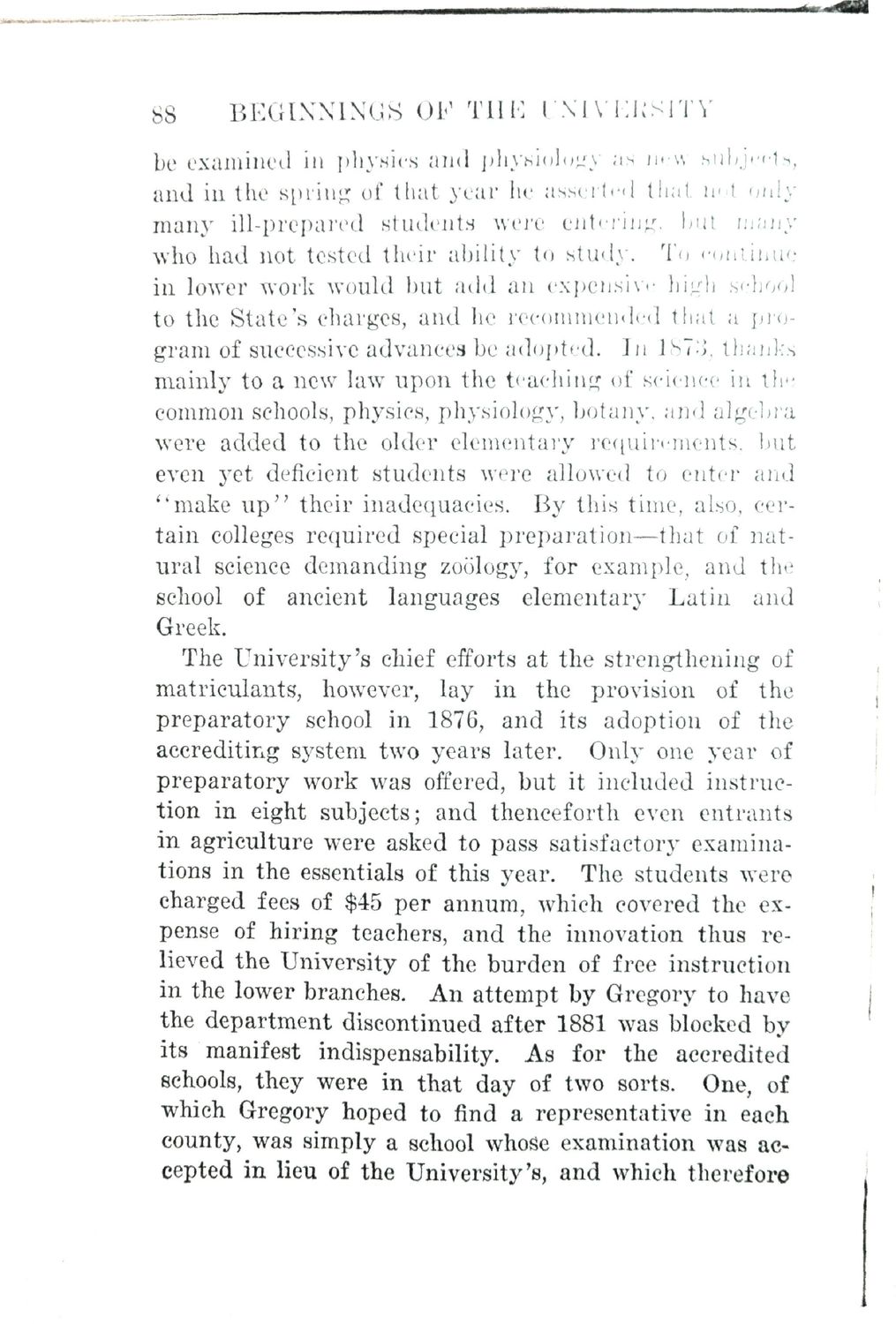| |
| |
Caption: Book - History of the University (Nevins)
This is a reduced-resolution page image for fast online browsing.

EXTRACTED TEXT FROM PAGE:
88 BEGINNINGS OF THE UNIVERSITY be examined in physics and physiology as new subjects, and in the spring of that year he asserted that not only many ill-prepared students were entering, but many who had not tested their ability to study. To continue in lower work would but add an expensive high school to the State's charges, and he recommended that a program of successive advances be adopted. In 1873, thanks mainly to a new law upon the teaching of science in the common schools, physics, physiology, botany, and algebra were added to the older elementary requirements, but even yet deficient students were allowed to enter and "make u p " their inadequacies. By this time, also, certain colleges required special preparation—that of natural science demanding zoology, for example, and the school of ancient languages elementary Latin and Greek. The University's chief efforts at the strengthening of matriculants, however, lay in the provision of the preparatory school in 1876, and its adoption of the accrediting system two years later. Only one year of preparatory work was offered, but it included instruction in eight subjects; and thenceforth even entrants in agriculture were asked to pass satisfactory examinations in the essentials of this year. The students were charged fees of $45 per annum, which covered the expense of hiring teachers, and the innovation thus relieved the University of the burden of free instruction in the lower branches. An attempt by Gregory to have the department discontinued after 1881 was blocked by its manifest indispensability. As for the accredited schools, they were in that day of two sorts. One, of which Gregory hoped to find a representative in each county, was simply a school whose examination was accepted in lieu of the University's, and which therefore
| |